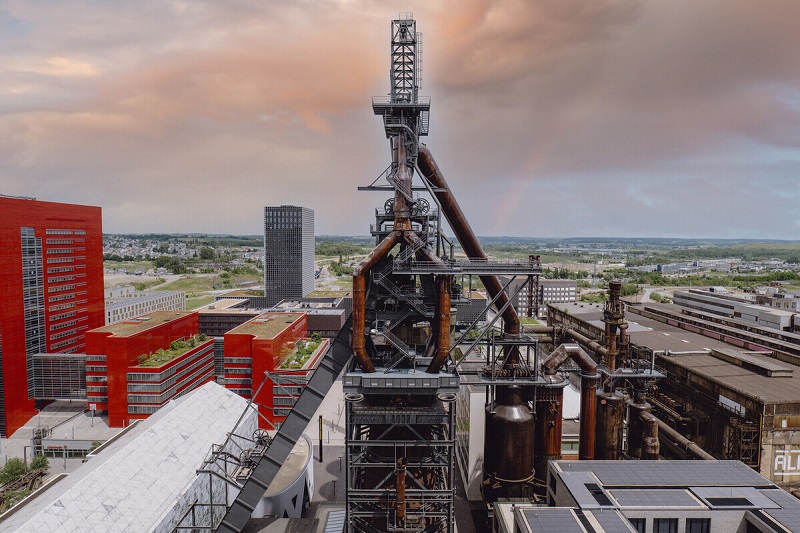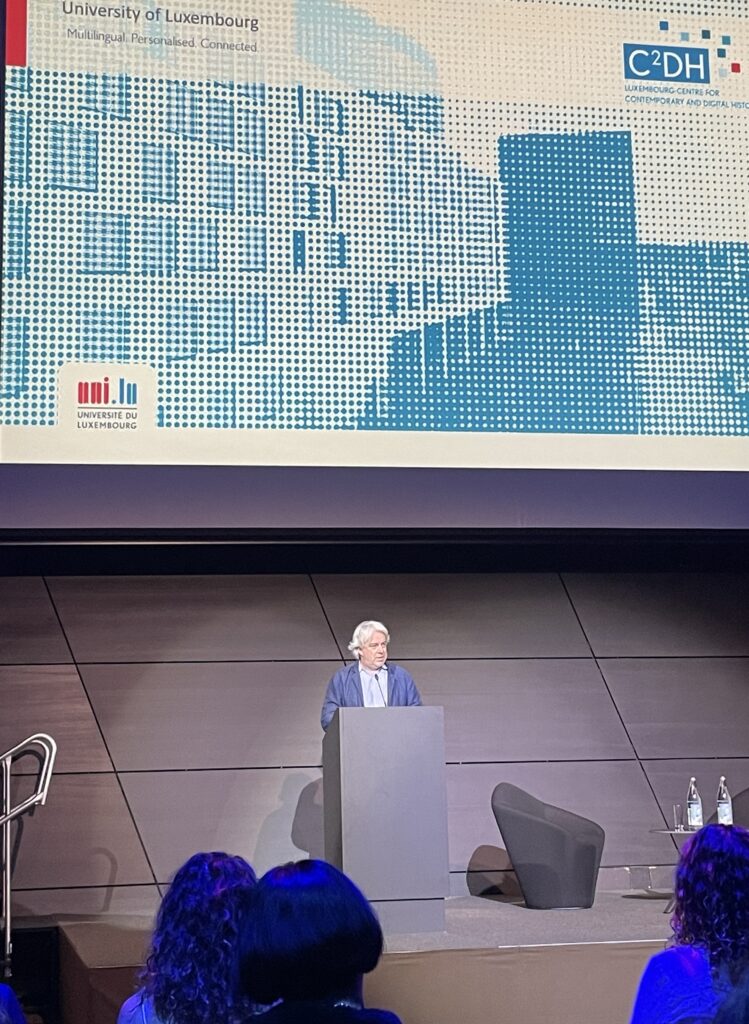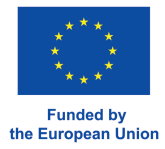MEMORISE at the 7th World Conference of the International Federation for Public History
By Esther Rachow
The University of Luxembourg is home to the world-renowned Luxembourg Centre for Contemporary and Digital History (C2DH), and the ideal setting for the 7th World Conference of the International Federation for Public History, which took place at the University of Luxembourg in Belval from September 3-6, 2024. MEMORISE researchers were honored to participate in and present at this prestigious event.

The conference hosted 500 participants from 37 countries who had the opportunity to participate in 36 parallel sessions, workshops and working groups. The University is set into, what used to be Luxembourg’s largest steelworks. The contemporary building structure is effectively integrated into a gigantic memorial of the impact of the steel industry in the region.
Aside from being a productive forum for public historians from around the world to exchange their ideas, the conference’s kinetic academic atmosphere fostered discussion of new projects and how to effectively communicate historical research among the wider public. The conference included an impressive number of presentations highlighting best practices for hands-on public history. This is in line with the mission of the International Federation for Public History which “aspires to create international links between public historians and promote the development of a global network of Public History practitioners”.
Presentations focused on a wide array of topics, spanning from digital public history to participatory and inclusive approaches, journalism, oral history, heritage preservation and sports. The presenters included a diverse group of well-known professors, young researchers, students, and practitioners. The conference’s main theme was addressed during the first day’s joint keynote lecture by Associate Professor of History and Director of Public History at the University of Cincinnati, Rebecca Wingo, and community activist Marvin Roger of Saint Paul, Minnesota, concerning the city’s former African American community of Rondo. The title of the lecture was “A Sustainable Shared Authority: Ensuring the Future of Rondo’s Past.”

Many presentations also focused on the Holocaust and research on the Nazi period, in particular digital approaches to preserve, commemorate and teach about this crucial chapter in the European past. A panel on “Digital Storytelling Approaches to Holocaust in Ukraine,” chaired by Blandine Landau (University of Luxembourg), included discussions of the effects of documentary filmmaking on Holocaust research and the representation of mnemonic communities and digital public history. In a panel on “Learning and Teaching Public History Internationally,” chaired by Irmgard Zündorf (FU Berlin and ZZF Potsdam), MEMORISE project members Tobias Ebbrecht-Hartmann and Esther Rachow of the Hebrew University of Jerusalem presented their paper on “Digital Modeling of Difficult Histories: 3-D Models as Digital Environments for Historical Learning.” In their presentation, Ebbrecht-Hartmann and Rachow discussed the potential of testimony based on 3-D models as visualizations of experiential knowledge about the history of the Holocaust and the Nazi period for teaching and learning about the past. They highlighted the MEMORISE 3D Prisoner Artwork Explorer, an application that helps to visualize and explore the experiences of prisoners of the Westerbork and Bergen-Belsen camps through their art.
Other relevant panels focused on questions raised by the digital learning and teaching of history. Participants in the panel “Teaching Digital Public History Skills to the Public” had the opportunity to reflect on the participatory and inclusive goals of digital public history. The panel “Doing Online Exhibitions” chaired by Christoph Brüll (University of Luxembourg), provided a space to discuss the connections between historical spaces and online exhibitions. The presentations by Stefan Krebs (University of Luxemburg), Maude Williams (Saarland University), Christine Szkiet (Pedagogical University Luzern), and Irmgard Zündorf focused in this context on questions of historical narrative, mnemonic players, and user participation.
A particularly relevant question for digital Holocaust commemoration and education was addressed in a panel on “The Methodological and Ethical Challenges of Archives in Participatory Public History” chaired by Myriam Dalal (University of Luxembourg). The participatory aspects of digital methods as well as the increased accessibility of archival sources pose specific ethical challenges that need to be addressed by MEMORISE researchers as well. Beyond this valuable reflection, the panel prompted a discussion on participatory work in public history on an international scale. Similar questions were also raised at the discussion on “Participation and Inclusion in Public History” moderated by Valerie Schafer (University of Luxembourg) through the lens of “infrasturcturing public history.” This panel addressed case studies from a variety of subfields, from gaming history to National socialist history, allowing researchers to share their experiences and results.
The panel “Public History and Web History: Singular and Collective Experiences, Uses and Memories” focused on the historical level of the development of the Internet and its participatory goals and character. Gabriele Balbi (University Svizzera), Niels Brügger (Aarhus University), Susan Aasman (University of Groningen), Nathalie Fridzema (University Groningen), Serge Noiret (European University Institute) and Anat Ben-David (Open University of Israel)participated in this high-profile panel that sought to showcase a combination of experience-based participatory projects and historical research.Blandine Landau and Laurent Moyse (Journalist and author) presented the closing keynote entitled “Keeping Their Memory Alive Together: The Digital Memorial of the Shoah in Luxembourg,” which concluded this inspiring conference with the discussion of an interactive and mindful memorial and commemoration project. Their presentation reminded us how vividly the past is alive today, not only in Luxembourg, but also in the international networks of public history around the world.



No responses yet